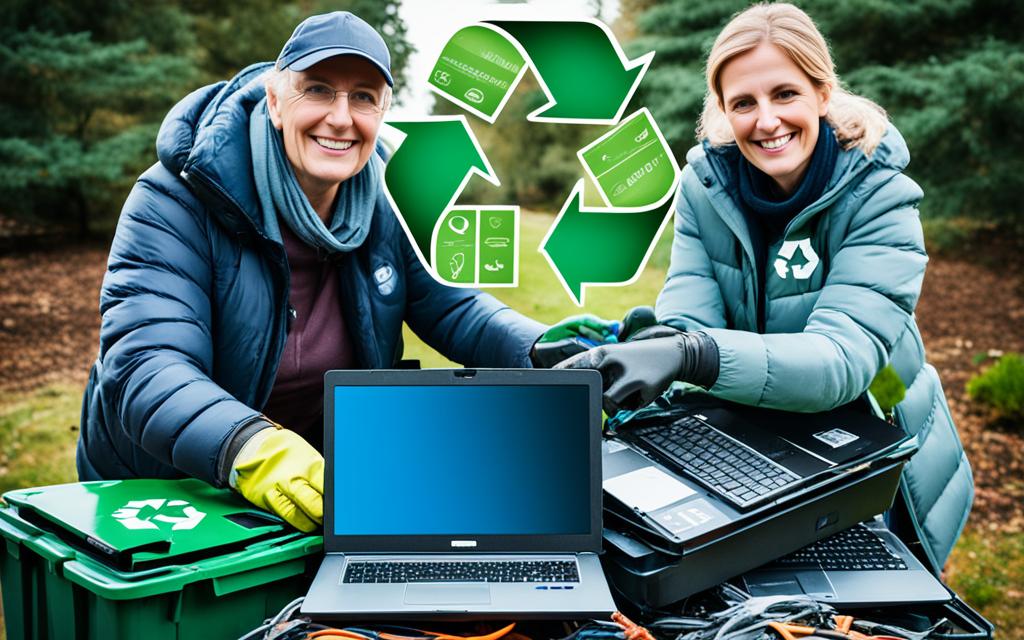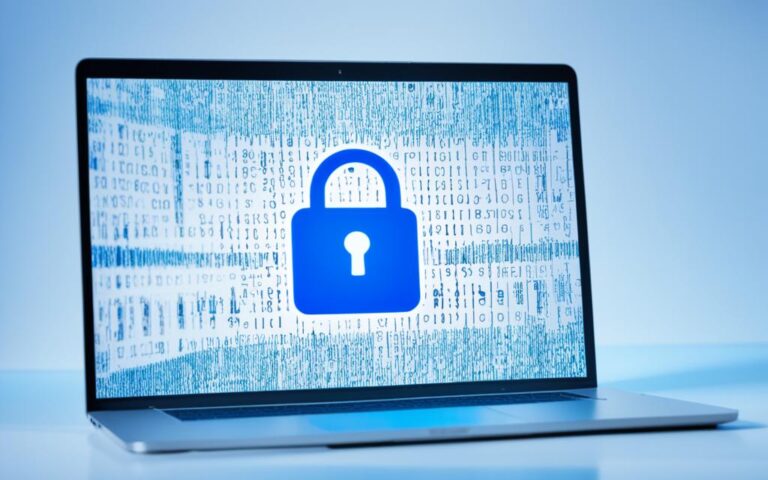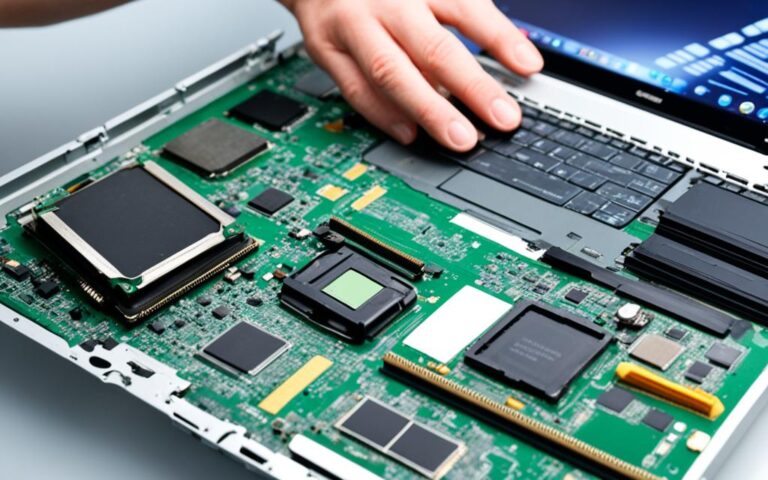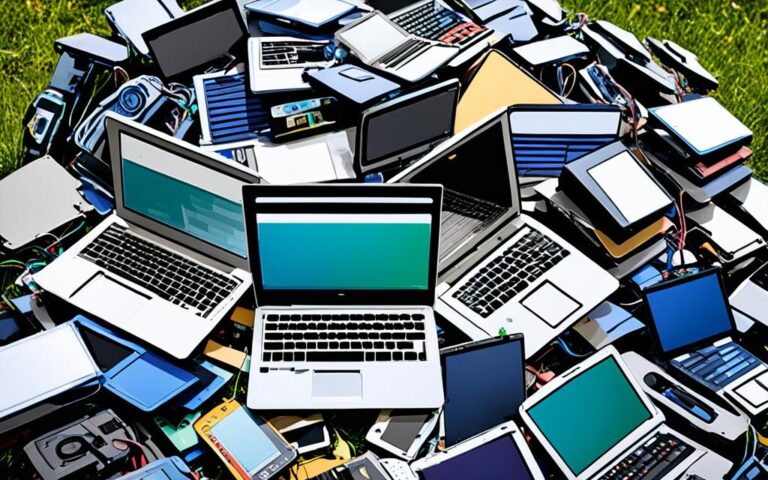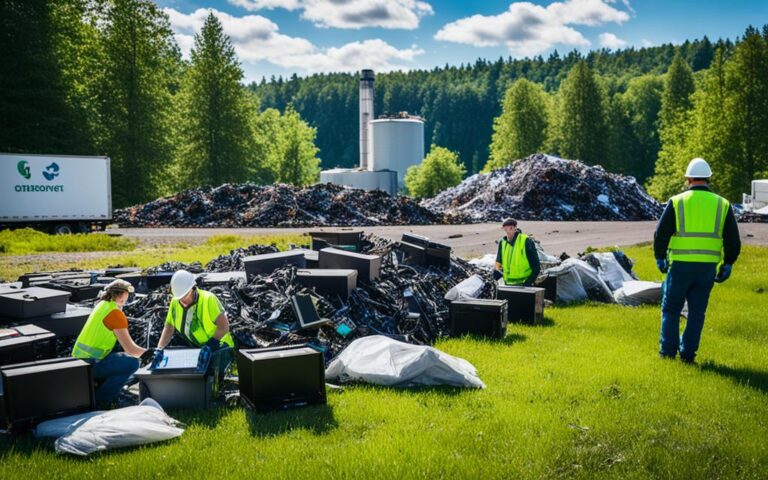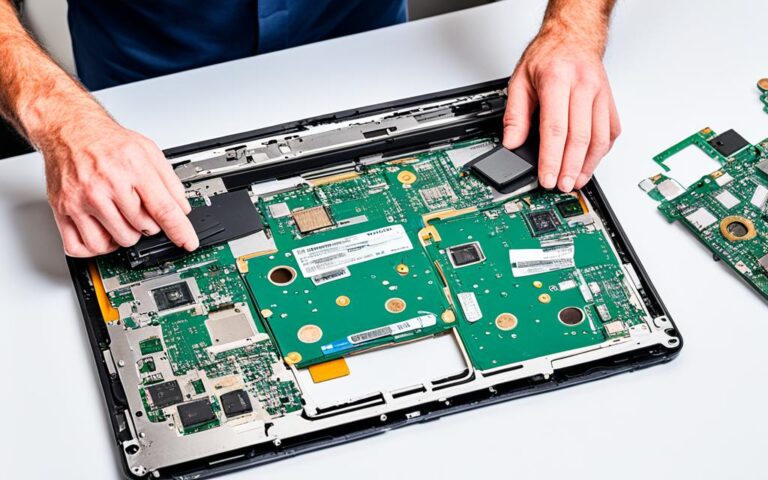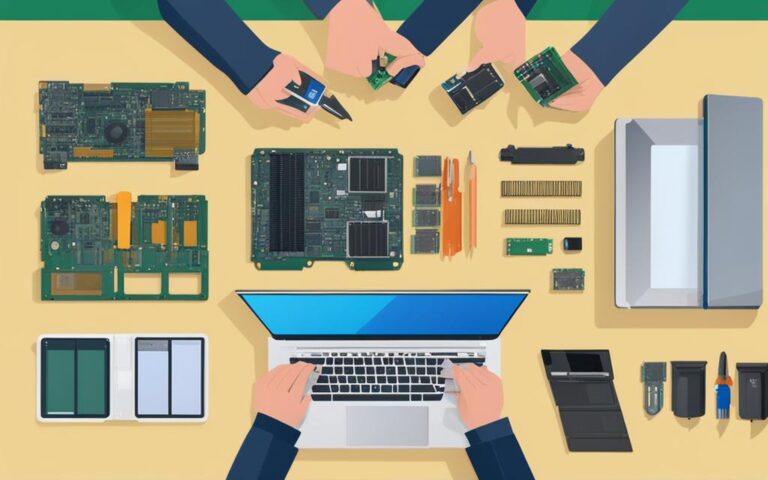How to Start a Laptop Recycling Program in Your Area
Starting a laptop recycling program in your area is a great initiative that can benefit both your community and the environment. In this article, we will provide you with a step-by-step guide to help you successfully create and execute local laptop recycling programs. You will learn about the benefits of recycling electronics, how to properly dispose of electronics, how to protect your data, and how to choose the right electronics recycling company.
By following these steps, you can make a positive impact on the environment and contribute to sustainability in your community.
Benefits of Electronics Recycling for Businesses
Electronics recycling offers numerous benefits for businesses. It helps protect the environment by preventing toxic materials from leaching into the surroundings. Recycling also safeguards your private assets by ensuring that sensitive data is properly destroyed before recycling. Additionally, recycling electronics can be profitable, as some devices contain valuable rare earth minerals that can be recycled and reused. By implementing electronics recycling solutions, your business can contribute to environmental sustainability while reaping the benefits of a recycling program.
What Electronics Can I Recycle?
When starting a laptop recycling program, it’s important to know what types of electronics can be recycled. Obsolete IT equipment such as outdated computers, old cellphones, smartphones, and tablets, fax machines, wired landlines, and flash drives can all be recycled. Other types of recyclable electronics include:
- Television sets
- DVD/VHS players
- Projectors
- Radios
- Circuit boards
- Audio video equipment
If you’re unsure about a specific device, you can contact your local electronics recycling facility to see if it’s recyclable.
Recyclable Electronics
| Electronics | Recyclability |
|---|---|
| Outdated computers | ✓ |
| Old cellphones | ✓ |
| Smartphones and tablets | ✓ |
| Fax machines | ✓ |
| Wired landlines | ✓ |
| Flash drives | ✓ |
| Television sets | ✓ |
| DVD/VHS players | ✓ |
| Projectors | ✓ |
| Radios | ✓ |
| Circuit boards | ✓ |
| Audio video equipment | ✓ |
Proper Disposal of Electronics
Once you have identified the electronics you want to recycle, you need to learn how to dispose of them properly. You have three main options: donate, sell, or recycle. Not-for-profit organizations often offer drop-off locations for electronic waste, and some electronics manufacturers also have programs in place to take back used electronics. Before disposing of any electronics, it’s important to wipe or destroy any data on the devices to protect your privacy. To ensure the proper disposal of electronics, it’s recommended to send them to a trustworthy recycling facility that can securely destroy the data.
When it comes to disposing of your electronics, it’s essential to make the right choice. Here are the three primary options:
- Donate: If your electronics are still in working condition, consider donating them to charities or organizations in need. Many organizations accept electronic donations and use them for educational purposes or to help individuals who cannot afford new devices.
- Sell: Another option is to sell your electronics. Online platforms like eBay and local classifieds allow you to sell your used devices to interested buyers. This way, you can earn some money while ensuring that your electronics find a new home.
- Recycle: Recycling is the most environmentally-friendly way to dispose of your electronics. By recycling your devices, you prevent hazardous materials from ending up in landfills and contribute to conserving valuable resources. Look for certified recycling facilities that follow proper disposal procedures and securely destroy any data on the devices.
Properly disposing of electronics not only protects the environment but also safeguards your sensitive information. Before you donate, sell, or recycle your electronics, make sure to erase all personal data and remove any external storage devices, such as hard drives or memory cards. Additionally, check with the recycling facility or manufacturer for any specific instructions or requirements for recycling certain types of electronics.
Data Protection in Electronics Recycling
Data protection is a crucial aspect of electronics recycling. To prevent the risk of data breaches, it’s essential to wipe or destroy all data on the devices before recycling. Data recovery tools can retrieve information from old devices, so it’s important to take appropriate measures to safeguard your data. Avoid throwing old devices in the trash, wipe them clean before selling or donating, and remove and destroy all drives if you plan to recycle. Sending your electronics to a professional recycling facility for data destruction provides peace of mind and ensures the security of your private information.
When it comes to data protection in recycling, companies and individuals should prioritize secure data destruction to prevent any potential breaches or leaks. This involves taking steps to erase or destroy all data stored on the electronic devices before recycling them. By following these practices, you can minimize the risk of sensitive information falling into the wrong hands.
“Data protection is not just about keeping data safe, but also about ensuring responsible and ethical practices. Secure data destruction is an essential part of the electronics recycling process and should never be overlooked.”
There are several methods available for secure data destruction. One common practice is data wiping, which involves using specialized software to overwrite the existing data on the device multiple times, making it nearly impossible to recover. Physical destruction is another reliable method, where the device is physically shredded or crushed, ensuring that the data cannot be accessed.
While personal data protection is important, it’s equally vital for businesses to prioritize data security during the recycling process. Companies often store sensitive customer data, financial records, or proprietary information on their devices. Failing to securely destroy this data before recycling can lead to significant legal and financial consequences.
To ensure secure data destruction, it’s advisable to partner with reputable electronics recycling companies that have expertise in handling sensitive data. These companies employ secure data destruction methods and provide certificates of destruction as proof that the data has been irretrievably eliminated. By choosing a trusted recycling partner, you can have confidence that your data is being handled responsibly and securely.
The Importance of Secure Data Destruction:
- Data Privacy: Protecting personal and sensitive information from unauthorized access.
- Legal Compliance: Complying with data protection laws and regulations, such as the General Data Protection Regulation (GDPR) in the UK.
- Reputation and Trust: Safeguarding your company’s reputation by demonstrating a commitment to data security and responsible recycling.
- Risk Mitigation: Minimizing the risk of data breaches and potential legal liabilities.
Choosing a trusted electronics recycling company for secure data destruction:
| Factors to Consider | Benefits |
|---|---|
| Proven Track Record | Experience in secure data destruction and positive customer reviews. |
| Certifications | Look for certifications such as ISO 27001 which ensure compliance with strict data security standards. |
| Secure Transportation | Ensure the company has secure transportation methods to protect your devices during transit. |
| Data Destruction Methods | Verify that the company uses reliable and certified data destruction methods, such as data wiping or physical destruction. |
| Environmental Responsibility | Choose a company that follows eco-friendly practices for recycling electronic waste. |
By prioritizing data protection and secure data destruction in electronics recycling, individuals and businesses can mitigate risks, protect sensitive information, and contribute to a more secure digital environment.
Creating a Recycling Plan for Your Company
To successfully implement a laptop recycling program at work, it’s important to create a corporate electronics recycling plan. This plan should include step-by-step recycling solutions and set expectations for your team. By providing clear guidelines, you can ensure that employees understand their role in the recycling process and actively participate in recycling efforts.
Designate a Central Collection Point
Start by designating a central collection point where employees can deposit their old laptops and other electronic devices for recycling. This collection point should be easily accessible and well-marked to encourage employee engagement. Placing recycling bins in common areas, such as break rooms or near copy machines, can help increase participation.
Appoint Recycling Leaders
It’s helpful to appoint recycling leaders within your organization. These individuals can oversee the collection and disposal of electronic devices, ensuring that recycling guidelines are followed. Recycling leaders can also educate and motivate their fellow colleagues to participate in the recycling program, further promoting a culture of sustainability.
Educate Employees
Providing education and awareness about the benefits of recycling is essential. Consider organizing presentations or training sessions to inform employees about the environmental impact of electronic waste and the importance of responsible recycling. Highlight the potential hazards of improper disposal and emphasize the positive contributions your company can make by recycling electronics.
Establish Annual Benchmarks
Setting annual benchmarks for the collection and disposal of electronics can help track the success of your recycling program. Consider measuring the number of electronic devices recycled, the amount of e-waste diverted from landfills, or the reduction in carbon emissions achieved. These benchmarks can serve as motivation and incentivize employees to reach recycling goals.
Create Incentives
Creating incentives for employees to recycle can significantly boost participation and success. Offer rewards, such as recognition, gift cards, or even small incentives tied to performance evaluations, to employees who actively contribute to the recycling program. Publicly acknowledge those who consistently demonstrate a commitment to recycling and encourage others to follow their example.
“Implementing a corporate electronics recycling plan not only benefits the environment but also fosters a sense of social responsibility within your organization. By taking steps to recycle electronic devices, your company can make a positive impact and inspire sustainable practices among employees.”
Benefits of a Corporate Electronics Recycling Plan
| Benefits | Description |
|---|---|
| Environmental Impact | Reduces electronic waste and prevents toxic materials from harming the environment. |
| Data Security | Ensures secure data destruction to protect company and customer information. |
| Cost Savings | Minimizes disposal costs and potential fines associated with improper disposal. |
| Positive Reputation | Enhances your company’s image as an environmentally responsible organization. |
| Employee Engagement | Promotes a culture of sustainability, boosting employee morale and satisfaction. |
By following these recycling guidelines, your company can contribute to a greener future while fostering a responsible and eco-conscious workplace.
Choosing the Right Electronics Recycling Company
When selecting an electronics recycling company for your laptop recycling program, it’s important to choose a reputable and trustworthy provider. By partnering with a reliable company, you can ensure that your electronics are handled responsibly and ethically.
Here are some key factors to consider when choosing an electronics recycling company:
- Pick-up services: Look for a company that offers convenient pick-up services, saving you time and effort in transporting your electronics to their facility.
- Proof of data destruction: Data security is paramount when recycling electronics. Ensure that the recycling company provides proof of data destruction, giving you peace of mind that your sensitive information is properly handled.
- Certifications for recycling: Verify that the recycling facility holds the necessary certifications for electronics recycling. This ensures that they follow industry standards and environmentally-friendly practices.
- Eco-friendly practices: Choose a company that prioritizes sustainability and minimizes environmental impact. Look for certifications such as ISO 14001, which demonstrates their commitment to responsible recycling.
Before sending your electronics to a recycling facility, it’s advisable to check online reviews and references to gauge the company’s reputation. Read about other customers’ experiences and make an informed decision.
Protecting your data and ensuring responsible recycling practices is crucial. By partnering with the right electronics recycling company, you can contribute to a more sustainable future.
Conclusion
Implementing a local laptop recycling program is a proactive step towards environmental sustainability and responsible electronics disposal. By following the steps outlined in this article, you can start making a difference in your community today. Recycling electronics not only benefits the environment but also protects your private data and can provide financial returns. Remember to choose a reputable electronics recycling company that follows proper recycling practices. Together, we can contribute to a greener and more sustainable future.
FAQ
What are the benefits of starting a local laptop recycling program?
Starting a laptop recycling program in your area can benefit both your community and the environment. It helps protect the environment by preventing toxic materials from leaching into the surroundings. Recycling also safeguards your private assets by ensuring that sensitive data is properly destroyed before recycling. Additionally, recycling electronics can be profitable, as some devices contain valuable rare earth minerals that can be recycled and reused.
What types of electronics can be recycled?
Obsolete IT equipment such as outdated computers, old cellphones, smartphones, and tablets, fax machines, wired landlines, and flash drives can all be recycled. Other types of recyclable electronics include television sets, DVD/VHS players, projectors, radios, circuit boards, and audio video equipment. If you’re unsure about a specific device, you can contact your local electronics recycling facility to see if it’s recyclable.
How do I dispose of electronics properly?
You have three main options: donate, sell, or recycle. Not-for-profit organizations often offer drop-off locations for electronic waste, and some electronics manufacturers also have programs in place to take back used electronics. Before disposing of any electronics, it’s important to wipe or destroy any data on the devices to protect your privacy. To ensure the proper disposal of electronics, it’s recommended to send them to a trustworthy recycling facility that can securely destroy the data.
How can I protect my data during electronics recycling?
To prevent the risk of data breaches, it’s essential to wipe or destroy all data on the devices before recycling. Data recovery tools can retrieve information from old devices, so it’s important to take appropriate measures to safeguard your data. Avoid throwing old devices in the trash, wipe them clean before selling or donating, and remove and destroy all drives if you plan to recycle. Sending your electronics to a professional recycling facility for data destruction provides peace of mind and ensures the security of your private information.
How do I create a recycling plan for my company?
To successfully implement a laptop recycling program at work, it’s important to create a corporate electronics recycling plan. This plan should include step-by-step recycling solutions and set expectations for your team. You can designate a location to store electronics before they are recycled, appoint team leaders to collect the devices, and give presentations to educate employees about the benefits of recycling. It’s also helpful to explain why you are incorporating electronics recycling solutions at work and establish annual benchmarks for the collection and disposal of electronics. Creating incentives for employees to recycle can also increase participation and success.
How do I choose the right electronics recycling company?
When selecting an electronics recycling company for your laptop recycling program, it’s important to choose a reputable and trustworthy provider. Look for a company that offers pick-up services, provides proof of data destruction, has the necessary certifications for recycling, and follows eco-friendly practices. Before sending your electronics to a recycling facility, check online reviews to ensure the company has a positive reputation. Protecting your data and ensuring responsible recycling practices is crucial, so take the time to research and select the right electronics recycling company for your program.

